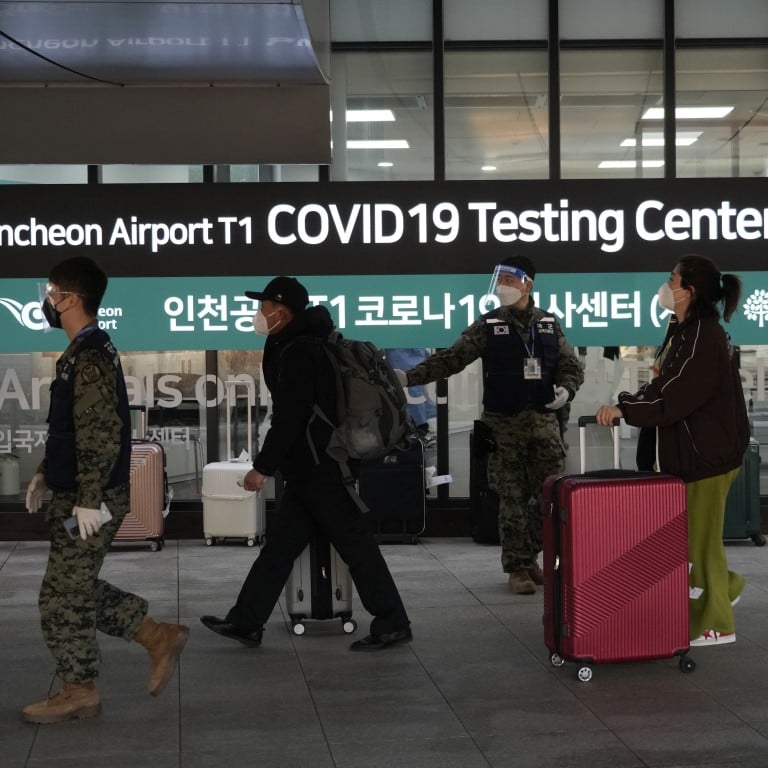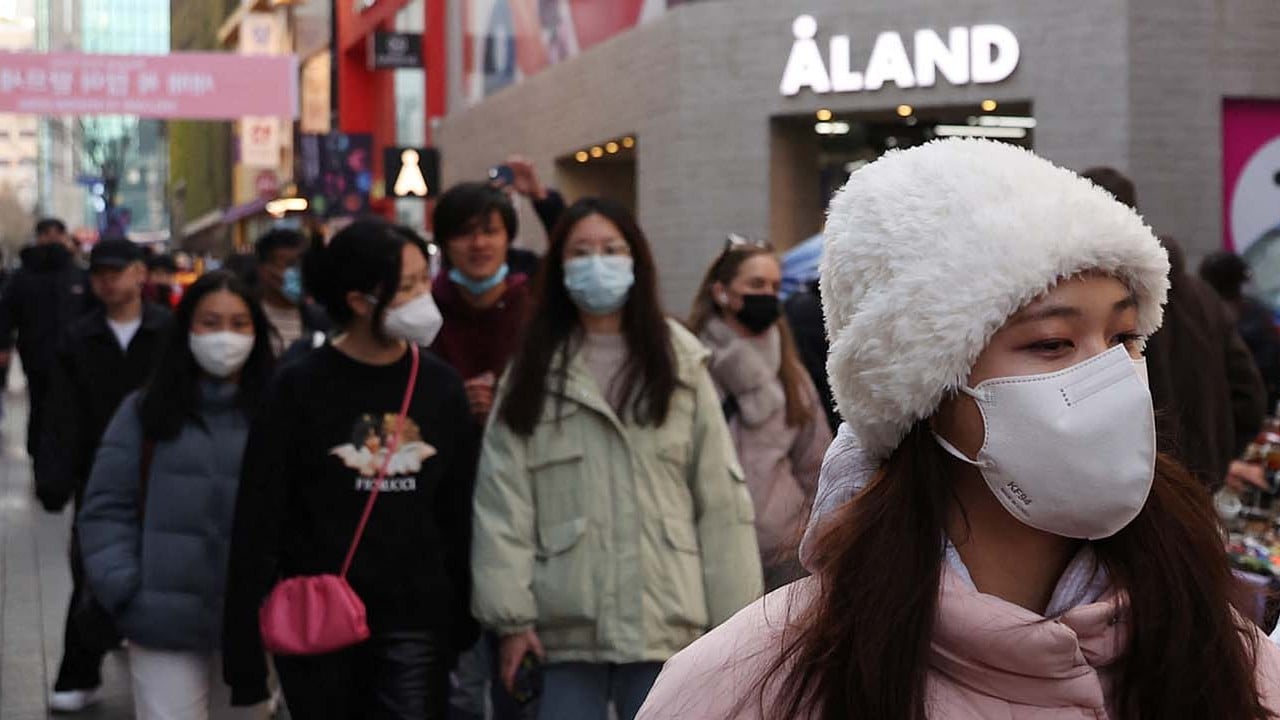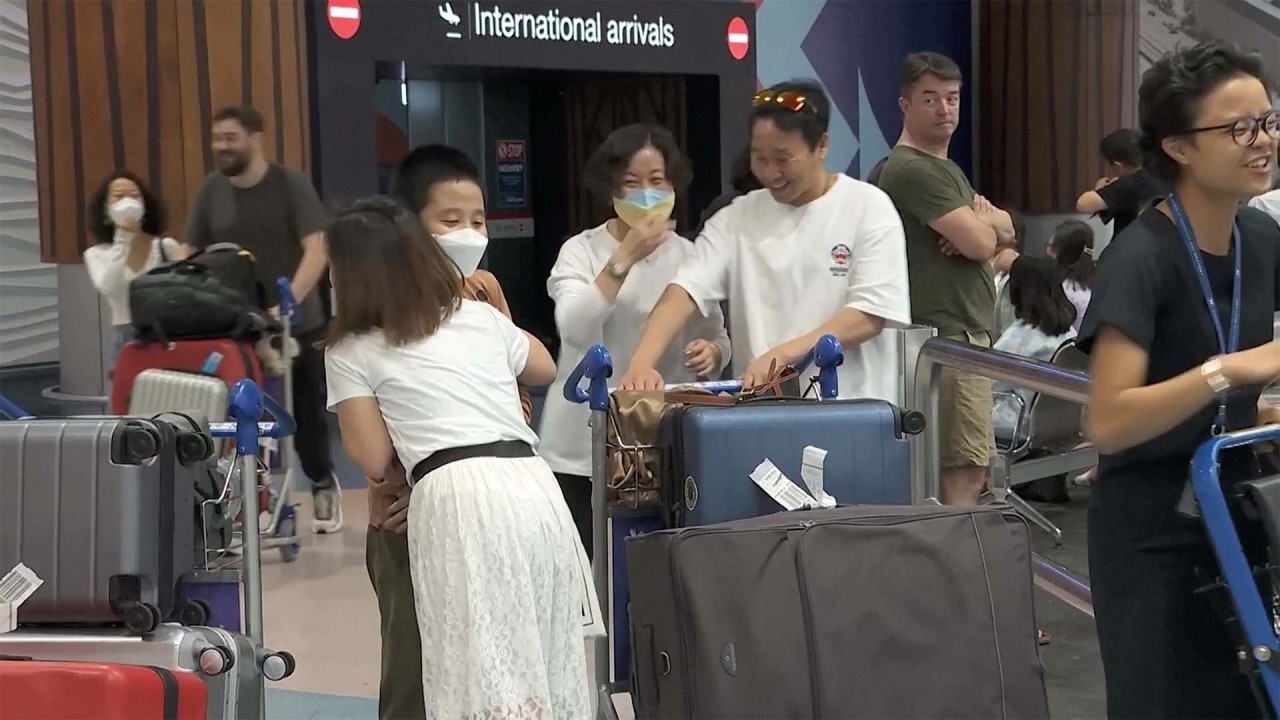
South Korea accused of ramping up discrimination against Chinese tourists
- Social media account of Chinese tabloid says Seoul’s entry restrictions, PCR tests unfairly target Chinese travellers
- South Korea says curbs are needed to protect against imported Covid infections
In a commentary, Buyidao, a WeChat account associated with nationalist tabloid Global Times, an arm of the Communist Party mouthpiece People’s Daily, called Beijing’s decision to suspend some types of visas for South Koreans “reciprocal countermeasures”.
Buyidao also argued that a phone call between top diplomats from China and South Korea on Monday “reflects China’s attitude of not wanting to affect the normal development of Sino-Korean relations”.
The social media account also referred to recent reports of Chinese tourists being tagged with yellow cards as soon as they arrived in South Korea.
“South Korea’s discriminatory entry restrictions are already infuriating the Chinese public,” the post said.
Beijing relaxed its border controls late last month, and this month it scrapped travel quarantine after China abruptly ended its long-standing zero-Covid policy. However, several countries, including the United States, Japan and South Korea, announced restrictions on arrivals from China amid concern over infections.
“From the handling by these few countries, it is clear that they are still engaged in the same routine of double standards, politicisation and weaponisation of Covid-19,” the post said.
China dream dashed for South Koreans caught in Covid-19 travel row
On Tuesday, the Chinese embassy in South Korea announced that it had temporarily stopped issuing short-term visas to South Koreans for business, tourism, medical care, transit and other personal matters. The measures were made in accordance with “domestic instructions” and may be adjusted once South Korea scraps its restrictions, it said.
On Thursday, South Korea began asking people travelling from mainland China to present a negative PCR test taken within 48 hours. Similar measures were applied to travellers from Hong Kong and Macau on Saturday.
On Tuesday, South Korea announced that flights from Hong Kong and Macau would only be permitted to land at Incheon.
News portal Tianmu News cited Chinese tourists as saying they were guided by soldiers to take PCR tests, which cost as much as 430 yuan (US$63).
“The whole process was very strict, and only for Chinese arrivals, which I felt was quite outrageous,” said one passenger identified as Zhou Min, who travelled from Nanjing to Incheon on Saturday. “[We were] guarded during the whole process, as if we might escape.”
In a phone call with his South Korean counterpart Park Jin on Monday, China’s new Foreign Minister Qin Gang also protested against the travel restrictions.
According to the Chinese foreign ministry, Qin urged Seoul to uphold an “objective and scientific attitude”.
Park said the quarantine policy was implemented “in accordance with scientific evidence”, the South Korean side said, adding that the two ministers agreed to communicate and cooperate in tackling various regional and global issues, including the Covid-19 situation and economic recovery.
China ready for Russian travellers as Covid ‘victory’ dawns: top envoy
Before the pandemic, South Korea and Japan were among the biggest sources of foreign visitors to China, while the two Asian neighbours were also among the most popular travelling destinations for Chinese tourists.
According to official figures, Chinese tourists made 6.02 million trips to South Korea in 2019 and 9.59 million trips to Japan.



